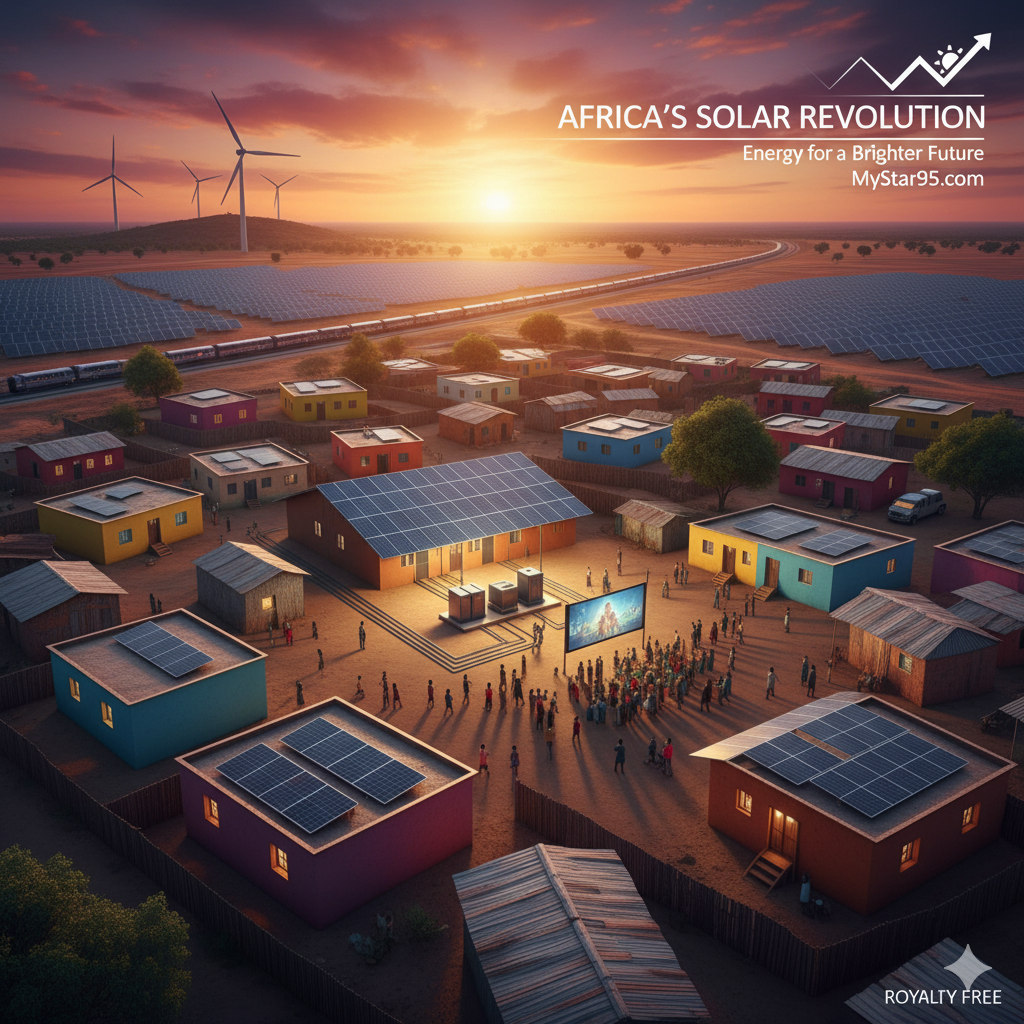Africa is currently experiencing a monumental surge in solar power adoption, marking a potential “take-off” for clean energy across the continent. Driven by an escalating energy demand, persistent power cuts in numerous regions, and the steadily decreasing cost of solar technology, this transformative shift is evident in booming solar panel imports and the rapid development of both large-scale utility projects and essential off-grid solutions [1]. While significant investment is still required to unlock Africa’s full solar potential, the signs point towards a bright, electrified future.
Evidence of Africa’s Solar Take-off:
- Booming Solar Imports: A clear indicator of this burgeoning market is the dramatic increase in solar panel imports. In the year leading up to June 2025, Africa’s imports of solar panels from China surged, bringing in enough capacity to generate 60% more electricity than in the preceding 12 months, according to an analysis by climate change think tank Ember [1]. This unprecedented influx signals robust demand and aggressive deployment.
- Rapid Growth Across Diverse Countries: The expansion isn’t confined to a few nations. At least 18 African countries are projected to install 100 MW or more of new solar capacity in 2025. This is a significant leap from just two countries achieving this milestone in 2024, demonstrating widespread adoption and commitment to solar energy across the continent [1].
- Significant Project Potential: Ambitious initiatives like the “Desert-to-Power project” are at the forefront of this growth. This transformative project aims to deploy an astounding 10 GW of solar power across 11 Sahelian countries by 2030, with the potential to electrify 250 million people. Such large-scale endeavors underscore the enormous opportunity and commitment to harnessing solar energy [1].
Key Drivers Propelling This Growth:
- Addressing Critical Energy Gaps: For countless communities across Africa, particularly in rural areas, solar power offers a lifeline. It provides clean, reliable energy access where traditional power grids are non-existent or unreliable. This access to electricity fundamentally transforms lives, enabling better access to education, healthcare, and vital economic opportunities [1].
- Increasing Cost-Effectiveness: Solar is rapidly becoming the more affordable and practical alternative to expensive, polluting diesel generators that many businesses and households currently rely on during power outages. In some regions, like Nigeria, investments in solar panels are proving to pay for themselves within months, making the economic argument for solar increasingly compelling [1].
- Abundant Solar Resource Potential: Africa is blessed with some of the world’s most intense and consistent solar irradiation, making it an ideal location for harnessing solar energy. This natural advantage positions the continent perfectly to become a global leader in solar power generation [1].

Challenges and the Path Forward:
Despite this remarkable growth, scaling up solar technology to its full potential in Africa faces specific challenges:
- Need for Robust Financing: The high upfront capital costs for large-scale solar projects in Africa remain a significant barrier. Unlocking the continent’s full solar potential hinges on scaling up access to low-cost finance and implementing mechanisms to de-risk investments for developers and investors [1].
- Infrastructure and Grid Development: While the focus on off-grid solutions is crucial, significant investment is also needed in grid infrastructure and energy storage technologies. However, the rapidly falling costs of battery storage are positively impacting this outlook, making grid integration more feasible [1].
- Manufacturing Potential: Currently, Africa heavily relies on imported solar panels. There is an enormous opportunity to develop domestic solar manufacturing capacity. Establishing local production would not only support the growing market but also create jobs and foster technological independence [1].
Africa’s solar revolution is more than just an energy transition; it’s a pathway to economic growth, improved living standards, and sustainable development. With continued investment and strategic planning, the continent is poised to become a global leader in clean energy, illuminating a brighter future for millions.
Sources: [1] Information provided by analysis from climate change think tank Ember and details regarding various solar initiatives across Africa.
